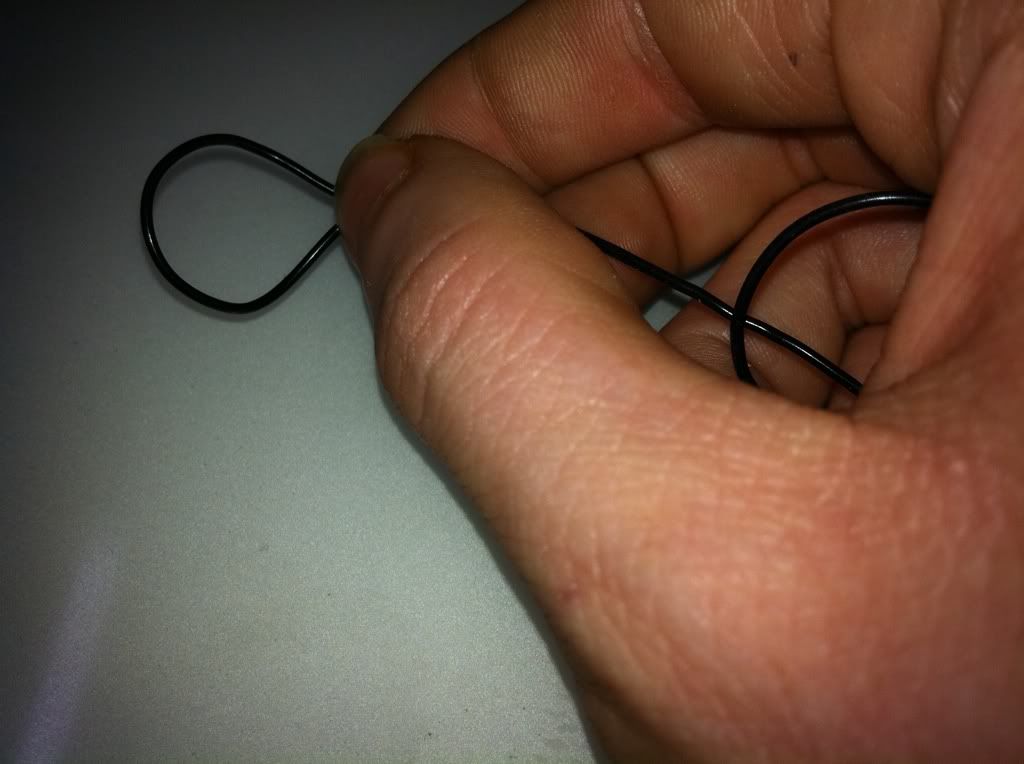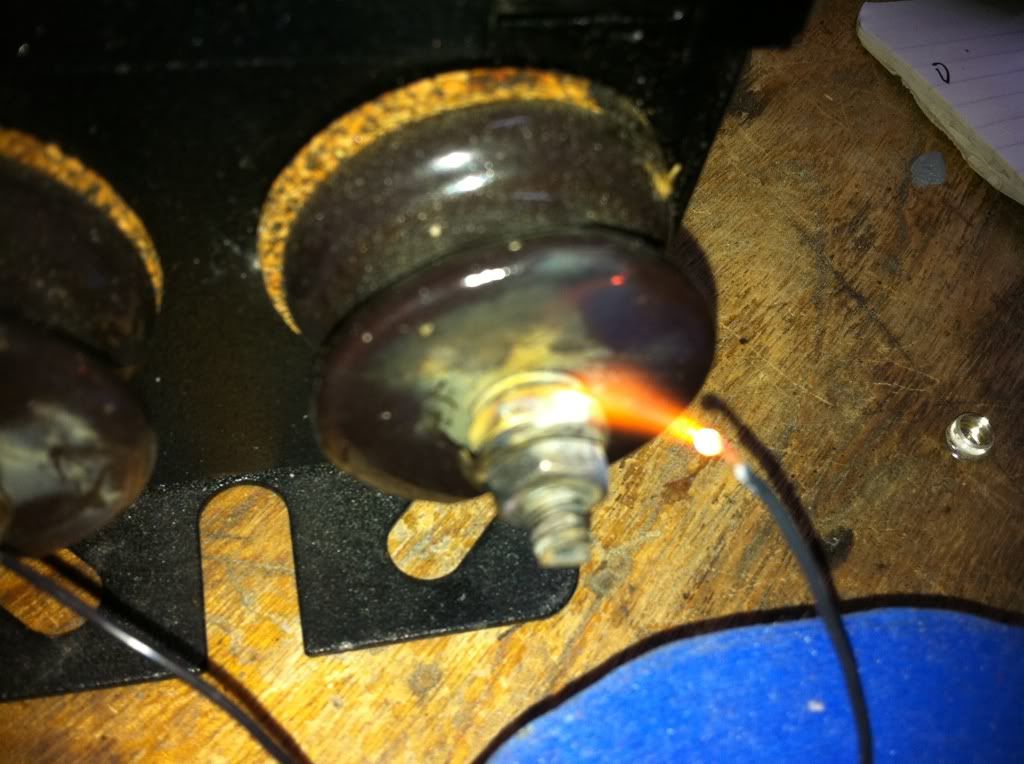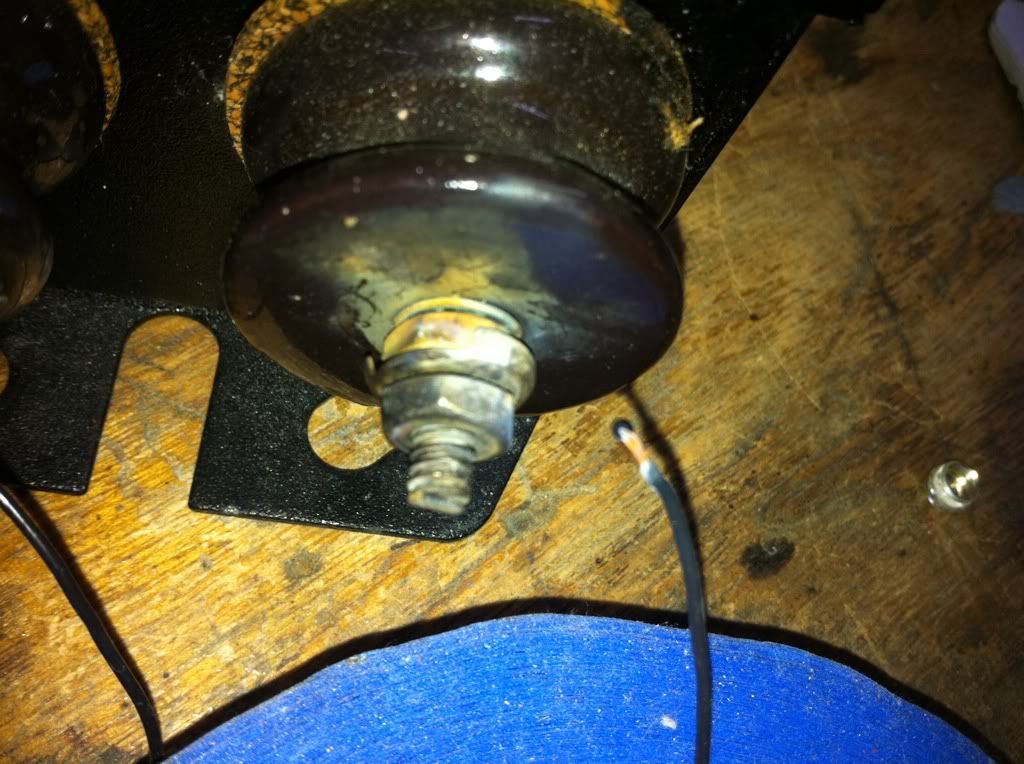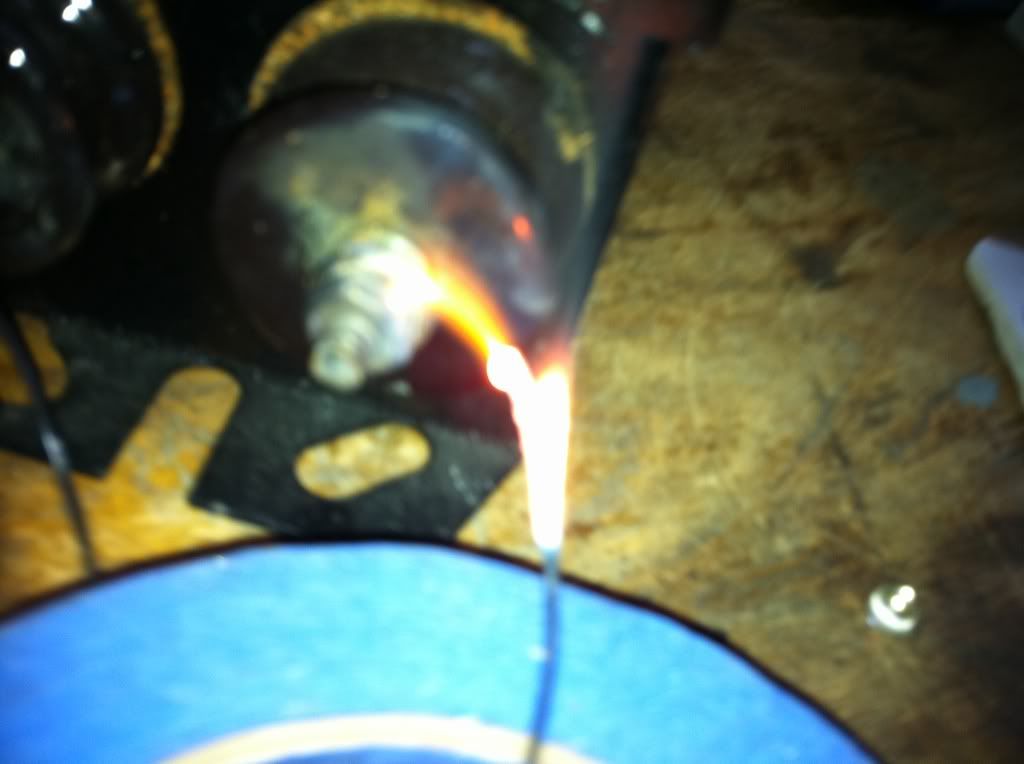- Joined
- Aug 22, 2009
- Messages
- 404
- Points
- 0
Silicon wire
I know there have been concerns about the thickness of the insulation of Mohrenberg's silicon wire, I thought I might tests the concerns as well as the claims of Mohrenberg.
first, is the wire flexible?

yes...
is the wire heat resistant?

conductors are red hot from the incredibly hot arc

conductors have fuse into a ball but the insulation is still fine

insulation on fire (sorry for the image quality, i was in a bit of a rush to put the fire out)
The wire is incredibly resistant to heat. The insulation survived intensely hot arc of electricity, even when the conductors had melted almost all the way down to it. However, after the open flame surrounding the arc had made contact with the insulation, the silicon rubber burst into flames and started burning down the wire quite quickly. In short, the wire is heat resistant but not fire resistant.
Will I be electrocuted by using this wire in my laser?
ec6124a6.mp4 video by lazorlad - Photobucket
the wire insulates against everything a 6kV transformer can throw at it. so, if your laser runs on over that, you may want to do further tests. however, for what most people use here, the wire has plenty of insulation.
Pros:
very flexible
the most heat resistant wire I have ever seen
great electrical insulation
cons:
if you had dreams of a laser inside a barbeque, i am sorry to say that you may want a different kind of wire.
I know there have been concerns about the thickness of the insulation of Mohrenberg's silicon wire, I thought I might tests the concerns as well as the claims of Mohrenberg.
first, is the wire flexible?

yes...
is the wire heat resistant?

conductors are red hot from the incredibly hot arc

conductors have fuse into a ball but the insulation is still fine

insulation on fire (sorry for the image quality, i was in a bit of a rush to put the fire out)
The wire is incredibly resistant to heat. The insulation survived intensely hot arc of electricity, even when the conductors had melted almost all the way down to it. However, after the open flame surrounding the arc had made contact with the insulation, the silicon rubber burst into flames and started burning down the wire quite quickly. In short, the wire is heat resistant but not fire resistant.
Will I be electrocuted by using this wire in my laser?
ec6124a6.mp4 video by lazorlad - Photobucket
the wire insulates against everything a 6kV transformer can throw at it. so, if your laser runs on over that, you may want to do further tests. however, for what most people use here, the wire has plenty of insulation.
Pros:
very flexible
the most heat resistant wire I have ever seen
great electrical insulation
cons:
if you had dreams of a laser inside a barbeque, i am sorry to say that you may want a different kind of wire.
Last edited:



